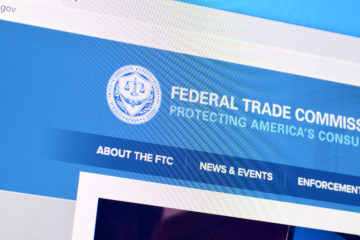In a new article for RealClearMarkets, Market Institute President Charles Sauer sounds the alarm on the Senate’s confirmation of Abigail “Gail” Slater as Assistant Attorney General for the DOJ’s Antitrust Division. Slater’s support for Lina Khan-style antitrust policies marks another win for the growing “Khanservative” movement—conservatives who’ve abandoned free markets in favor of big-government control.
Sauer lays out how Slater’s confirmation, with only Senator Rand Paul voting no, signals a dangerous shift in right-of-center economic thinking. Read the full piece below.
“On March 11, 2025, the U.S. Senate confirmed Abigail (Gail) Slater as Assistant Attorney General (AAG) for the Antitrust Division of the Department of Justice. Slater received support from the majority of Democrats, but Kentucky Senator Rand Paul was the only Republican to oppose her. It is not a coincidence that Slater was supported by so many Democrats and opposed by the Senate’s leading champion of free markets. New AAG Slater, who previously was chief economic advisor to then-Senator JD Vance, is, like her old boss, a “Khanservative.” A Khanservative is a conservative who believes the right must embrace the aggressive approach to antitrust favored by former Federal Trade Commission (FTC) Chair Lina Khan.
At her confirmation hearing, Slater said she would continue the Biden Administration’s policies in areas such as using antitrust procedures to “protect” workers, limiting “dominant” firms’ acquisitions of newer, smaller competitors, and “the critical need to prevent the monopolization of digital markets.” Like her fellow Khanservative FTC Chair Andrew Ferguson, AAG Slater supports retaining the revised 2023 merger guidelines. These guidelines give antitrust enforcers authority to challenge almost any merger, acquisition, or other transaction that will increase a business’s market share—even if it will not give the business anything close to market dominance.
AAG Slater and FTC Chair Ferguson’s support for the new guidelines is a disappointment to those who hoped the Trump antitrust team would restore the consumer welfare standard to the center of antitrust policy. As the name suggests, the consumer welfare standard judges a business’s action by how it affects consumers—which is the way businesses obtain success in the free market. Under Khan and Slater’s predecessor, Jonathan Kanter, the consumer welfare standard was replaced with a holistic approach that widens the focus of antitrust. This “holistic” approach can justify using antitrust tools to further progressive goals, like strengthening unions. It can also be used to further conservative goals, like stopping corporations from implementing Diversity, Equity, and Inclusion (DEI). What it cannot do is help businesses create new products, increase employment, and grow the economy.
It is not surprising that progressives would embrace the “holistic” approach to antitrust even though doing so requires disregarding the lessons of history regarding government interference in the marketplace. What is surprising is that a rising group of conservatives shares the left’s disdain for the lessons of economic history. Khanservatism is an outgrowth of the “post-liberal right’s” distain for free-market economics, and support for a new conservatism that seeks to use big government to crush the left and impose conservative values on the country.
The post-liberal right sees big tech companies and other “woke” corporations as posing a threat to liberty and traditional values as big government. During her confirmation hearing before the Senate Judiciary Committee, Slater expressed sympathy with that point of view when she commented, “While nobody wants tyranny.gov—tyranny.com is not much better.” The fundamental problem with this statement is that the “tyrants” of tech have no power to force anyone to use their services. In fact, many conservatives are leaving big tech’s social media platforms for smaller and newer platforms. Some of these sites were created to appeal to those dissatisfied with big tech’s content moderation policies.”
Read the rest of the article at RealClearMarkets by clicking here.


